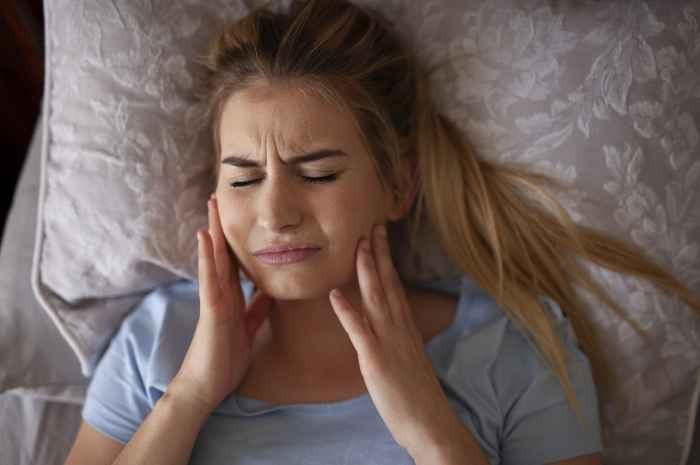
Bruxism: causes and consequences
Bruxism is a common condition that can occur during the day or night, caused by stress and anxiety. It can cause pain in the face, ears and/or head and lead to a number of consequences for the teeth
It is essential to relax the jaw and reduce tension to prevent these negative outcomes.
What is bruxism?
Bruxism is an involuntary clenching or grinding of the teeth, which can occur during the day or night.
It can be caused by stress, anxiety or other emotional problems that need to be addressed.
Other indicators are often linked to bruxism, such as:
- sleep disorders
- dental malocclusion
- malformations of the jaw
- alcohol or smoking abuse
- toothache or otitis
What are the consequences of Bruxism?
Bruxism is an involuntary clenching or grinding of the teeth, which can occur during the day or night.
It can be caused by stress, anxiety or other emotional problems that need to be addressed.
A dental examination for bruxism is essential, as it can cause serious damage to teeth and their function.
If the condition is identified, the patient can be directed to the most appropriate treatment and possible exercises to relax the facial muscles.
If left untreated, bruxism can cause
- tooth erosion
- muscle contractures
- persistent joint pain
- headaches
- earache
When to go to the dentist?
Bruxism can be asymptomatic or cause various discomforts.
In the latter case, it is essential that the patient obtains a special bite from the dentist to protect the teeth and temporomandibular joint from the continuous pressure.
Read Also
Emergency Live Even More…Live: Download The New Free App Of Your Newspaper For IOS And Android
Bruxism: What Are The Symptoms?
Obstructive Sleep Apnoea: What It Is And How To Treat It
Grinding Your Teeth While You Sleep: Symptoms And Remedies For Bruxism
Long Covid And Insomnia: ‘Sleep Disturbances And Fatigue After Infection’
Sleep Disorders: The Signs Not To Be Underestimated
Sleepwalking: What It Is, What Symptoms It Has And How To Treat It
Migraine And Tension-Type Headache: How To Distinguish Between Them?
Grinding Your Teeth While You Sleep: Symptoms And Remedies For Bruxism
Snoring: When Does Sleep Apnoea Become A Danger To Be Faced?


